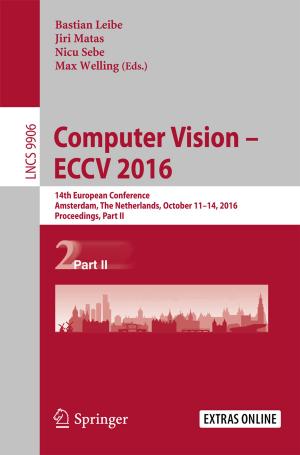English Language Ideologies in Korea
Interpreting the Past and Present
Nonfiction, Reference & Language, Education & Teaching, Teaching, Language Experience Approach, Educational Theory, Educational Reform, Language Arts| Author: | Jinhyun Cho | ISBN: | 9783319590189 |
| Publisher: | Springer International Publishing | Publication: | July 27, 2017 |
| Imprint: | Springer | Language: | English |
| Author: | Jinhyun Cho |
| ISBN: | 9783319590189 |
| Publisher: | Springer International Publishing |
| Publication: | July 27, 2017 |
| Imprint: | Springer |
| Language: | English |
This volume critically examines the phenomenon of “English fever” in South Korea from both micro- and macro-perspectives. Drawing on original research and rich illustrative examples, the book investigates two key questions: why is English so popular in Korea, and why is there such a gap between the ‘dreams’ and ‘realities’ associated with English in Korea? These questions are explored through the eyes of English-Korean translators and interpreters, who represent the professional group most intensely engaged in the zeal for English language mastery. Macro-perspectives focus on historical factors leading to the rise of English, with English-Korean translation and interpreting as a key theme. Micro-perspectives explore the dreams that individuals attach to English and the ways in which they imagine it can transform their lives, and contrast these dreams with the stark realities felt on the ground. The gaps between these dreams and realities are explored from various angles, which include commodification, gender and neoliberalism. The book thus offers fresh insights on how the phenomenon of “English fever” has been created, reproduced, and sustained from both historical and contemporary viewpoints.
From the reviews:
This is an important study of how English is experienced in one country, Korea. A very insightful analysis of the interlocking of historical factors influencing the status of English, and the interlocking significance of class, gender, aesthetics, myth-making, and the role of the media and competitive commodification. The study is based on competent use of relevant theoretical approaches, solid fieldwork, and a personal capacity to draw complex threads together. It demonstrates how language policy can be analysed in a stimulating way that has major importance beyond the borders of Korea. Language ideologies are brought to life effectively.* *Robert Phillipson, Emeritus Professor, Copenhagen Business School, Denmark
This volume critically examines the phenomenon of “English fever” in South Korea from both micro- and macro-perspectives. Drawing on original research and rich illustrative examples, the book investigates two key questions: why is English so popular in Korea, and why is there such a gap between the ‘dreams’ and ‘realities’ associated with English in Korea? These questions are explored through the eyes of English-Korean translators and interpreters, who represent the professional group most intensely engaged in the zeal for English language mastery. Macro-perspectives focus on historical factors leading to the rise of English, with English-Korean translation and interpreting as a key theme. Micro-perspectives explore the dreams that individuals attach to English and the ways in which they imagine it can transform their lives, and contrast these dreams with the stark realities felt on the ground. The gaps between these dreams and realities are explored from various angles, which include commodification, gender and neoliberalism. The book thus offers fresh insights on how the phenomenon of “English fever” has been created, reproduced, and sustained from both historical and contemporary viewpoints.
From the reviews:
This is an important study of how English is experienced in one country, Korea. A very insightful analysis of the interlocking of historical factors influencing the status of English, and the interlocking significance of class, gender, aesthetics, myth-making, and the role of the media and competitive commodification. The study is based on competent use of relevant theoretical approaches, solid fieldwork, and a personal capacity to draw complex threads together. It demonstrates how language policy can be analysed in a stimulating way that has major importance beyond the borders of Korea. Language ideologies are brought to life effectively.* *Robert Phillipson, Emeritus Professor, Copenhagen Business School, Denmark















